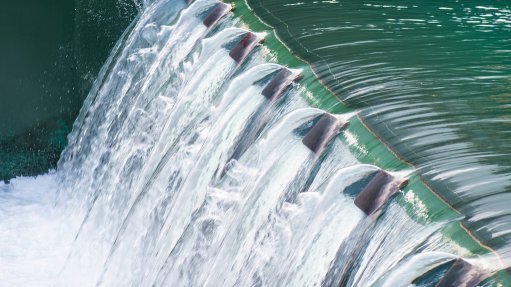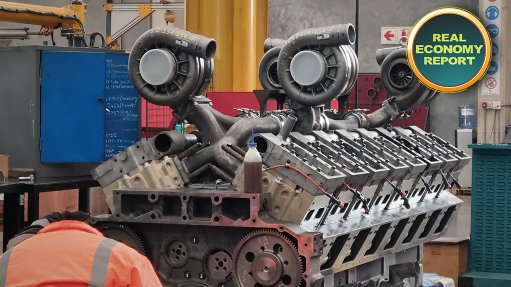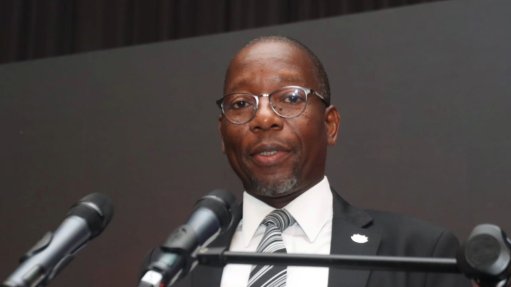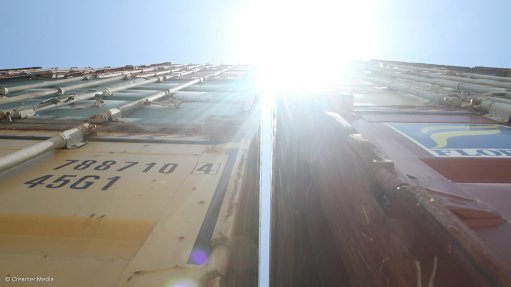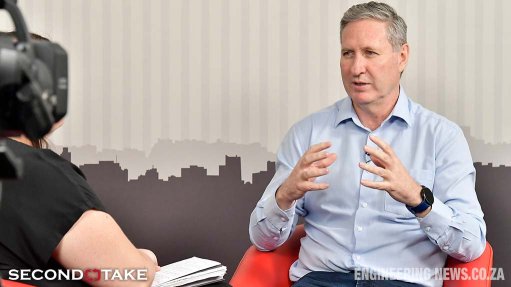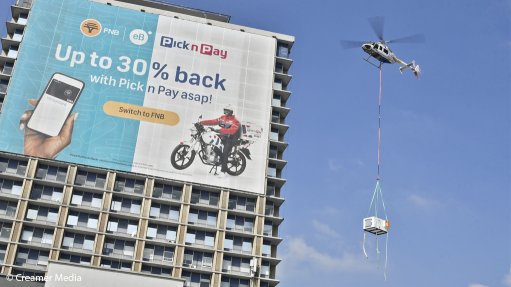Social enterprise aims to equip 100 young people with water technology skills this year
Social enterprise Kusini Water is accelerating its Water Champions programme to train unemployed youth and unlock economic opportunities in communities as it works to provide water access across South Africa.
The enterprise, which builds water treatment systems from nanotechnology and macadamia nut shells to bring clean, safe drinking water to people in rural, periurban and informal settlements, aims to equip 100 young people, especially women and those living with disabilities, with water technology skills this year.
Kusini Water founder and CEO Murendeni Mafumo tells Engineering News & Mining Weekly that financial and operational sustainability is one of the biggest challenges in rural water economics.
Over 50% of all water projects fail within the first two to three years as they lack local ownership and, particularly in donor-led or aid-based solutions, once a project is installed in a community, the community itself is often ill-equipped to operate and sustain the project.
The Water Champions programme is Kusini Water’s technical response to that challenge.
“We train young people from communities that are affected by the lack of access to clean water to operate and run the water filter systems that we install in those communities, enabling them to generate some sort of income from those locations while sustaining the project, creating full-time employment as well as ensuring that the project continues,” he says.
The group, which moved to new, larger premises in Riversands, Gauteng, early in April, has collaborated with various local and global enterprises since 2016 to provide water access at over 50 locations, which are used to gather and treat five-million litres of water each month.
“Our objective is to directly supply clean water to five-million individuals by 2025 and expand to all African nations by 2030.”
The 2023 edition of the Water Champions programme, a hybrid skills development programme, is designed to provide technical training for 100 young people, primarily unemployed women, equipping them with water-related technical skills and providing them with a National Certificate in Community Water, Health and Sanitation promotion (NQF Level 2) accreditation in the basics of water technology and treatment.
This programme also aims to improve economic participation by training them to run and own water kiosks.
For each province, the top ten successful candidates will be participating online in the first half of the bootcamp, of whom four will be selected to join the in-person bootcamp where they will be trained further and receive a grant to start and run their own water kiosk in their own community, particularly at points of use in schools, clinics and other important facilities within communities affected by the lack of access to clean water and sanitation.
“This provides more potential for job creation. As each kiosk is launched, there is a technician that is assigned per kiosk,” Mafumo says, noting that there will be opportunities for 100 technical support jobs.
“We are operating in all nine provinces and we need to be able to have a good network of technical support as well,” he continues, pointing out that, as much as water champions are trained, they often do not have years of technical experience in operating the systems.
In addition, Kusini Water builds filtration systems from waste macadamia nut shells, so further jobs can be created through macadamia nut farmers supplying the company with the materials required for its filtration systems.
All Kusini Water’s systems, which are modular, customisable, mobile-enabled, affordable and durable, use locally sourced material, expertise and renewable energy to bring clean water to communities, regardless of location.
The solar-powered Kusini Kiosk, for example, is one solution for township and middle-income areas, featuring a high-capacity solution for water provision in communities, including a water container and a mini water treatment plant that filters, unit-dependent, 5 000 to 20 000 litres of municipal or underground water each hour, with filtered water sold to communities at reduced rates.
“All our finished projects are fitted with a flow sensor; this sensor allows us and our partners to see how much water is flowing at each given time,” he adds, noting that the systems, which have a minimum four-stage treatment, comply with the SANS 241 standard for drinking water to ensure the water is safe for consumption.
Comments
Press Office
Announcements
What's On
Subscribe to improve your user experience...
Option 1 (equivalent of R125 a month):
Receive a weekly copy of Creamer Media's Engineering News & Mining Weekly magazine
(print copy for those in South Africa and e-magazine for those outside of South Africa)
Receive daily email newsletters
Access to full search results
Access archive of magazine back copies
Access to Projects in Progress
Access to ONE Research Report of your choice in PDF format
Option 2 (equivalent of R375 a month):
All benefits from Option 1
PLUS
Access to Creamer Media's Research Channel Africa for ALL Research Reports, in PDF format, on various industrial and mining sectors
including Electricity; Water; Energy Transition; Hydrogen; Roads, Rail and Ports; Coal; Gold; Platinum; Battery Metals; etc.
Already a subscriber?
Forgotten your password?
Receive weekly copy of Creamer Media's Engineering News & Mining Weekly magazine (print copy for those in South Africa and e-magazine for those outside of South Africa)
➕
Recieve daily email newsletters
➕
Access to full search results
➕
Access archive of magazine back copies
➕
Access to Projects in Progress
➕
Access to ONE Research Report of your choice in PDF format
RESEARCH CHANNEL AFRICA
R4500 (equivalent of R375 a month)
SUBSCRIBEAll benefits from Option 1
➕
Access to Creamer Media's Research Channel Africa for ALL Research Reports on various industrial and mining sectors, in PDF format, including on:
Electricity
➕
Water
➕
Energy Transition
➕
Hydrogen
➕
Roads, Rail and Ports
➕
Coal
➕
Gold
➕
Platinum
➕
Battery Metals
➕
etc.
Receive all benefits from Option 1 or Option 2 delivered to numerous people at your company
➕
Multiple User names and Passwords for simultaneous log-ins
➕
Intranet integration access to all in your organisation






